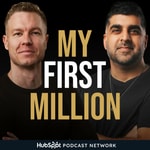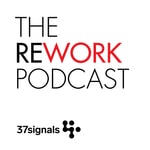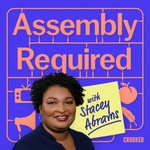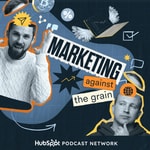Vanishing Gradients – Détails, épisodes et analyse
Détails du podcast
Informations techniques et générales issues du flux RSS du podcast.

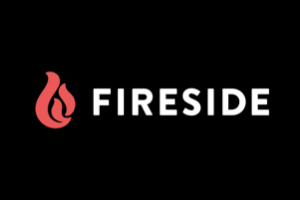
Classements récents
Dernières positions dans les classements Apple Podcasts et Spotify.
Apple Podcasts
🇬🇧 Grande Bretagne - technology
31/12/2024#58🇬🇧 Grande Bretagne - technology
30/12/2024#56🇬🇧 Grande Bretagne - technology
29/12/2024#72🇫🇷 France - technology
22/12/2024#65
Spotify
Aucun classement récent disponible
Liens partagés entre épisodes et podcasts
Liens présents dans les descriptions d'épisodes et autres podcasts les utilisant également.
See all- https://replit.com/
104 partages
- https://www.ajl.org/
26 partages
- https://www.fast.ai/
23 partages
- https://twitter.com/hugobowne
13 partages
- https://twitter.com/vanishingdata
12 partages
- https://twitter.com/HamelHusain
8 partages
Qualité et score du flux RSS
Évaluation technique de la qualité et de la structure du flux RSS.
See allScore global : 84%
Historique des publications
Répartition mensuelle des publications d'épisodes au fil des années.
Episode 1: Introducing Vanishing Gradients
Saison 1
mercredi 16 février 2022 • Durée 05:29
Episode 39: From Models to Products: Bridging Research and Practice in Generative AI at Google Labs
Saison 1
lundi 25 novembre 2024 • Durée 01:43:28
Episode 30: Lessons from a Year of Building with LLMs (Part 2)
Saison 1
mercredi 26 juin 2024 • Durée 01:15:23
Episode 29: Lessons from a Year of Building with LLMs (Part 1)
Saison 1
mercredi 26 juin 2024 • Durée 01:30:21
Episode 28: Beyond Supervised Learning: The Rise of In-Context Learning with LLMs
Saison 1
dimanche 9 juin 2024 • Durée 01:05:38
Episode 27: How to Build Terrible AI Systems
Saison 1
vendredi 31 mai 2024 • Durée 01:32:24
Episode 26: Developing and Training LLMs From Scratch
Saison 1
mercredi 15 mai 2024 • Durée 01:51:35
Episode 25: Fully Reproducible ML & AI Workflows
Saison 1
lundi 18 mars 2024 • Durée 01:20:38
Episode 24: LLM and GenAI Accessibility
Saison 1
mardi 27 février 2024 • Durée 01:30:03
Episode 23: Statistical and Algorithmic Thinking in the AI Age
Saison 1
mercredi 20 décembre 2023 • Durée 01:20:37


